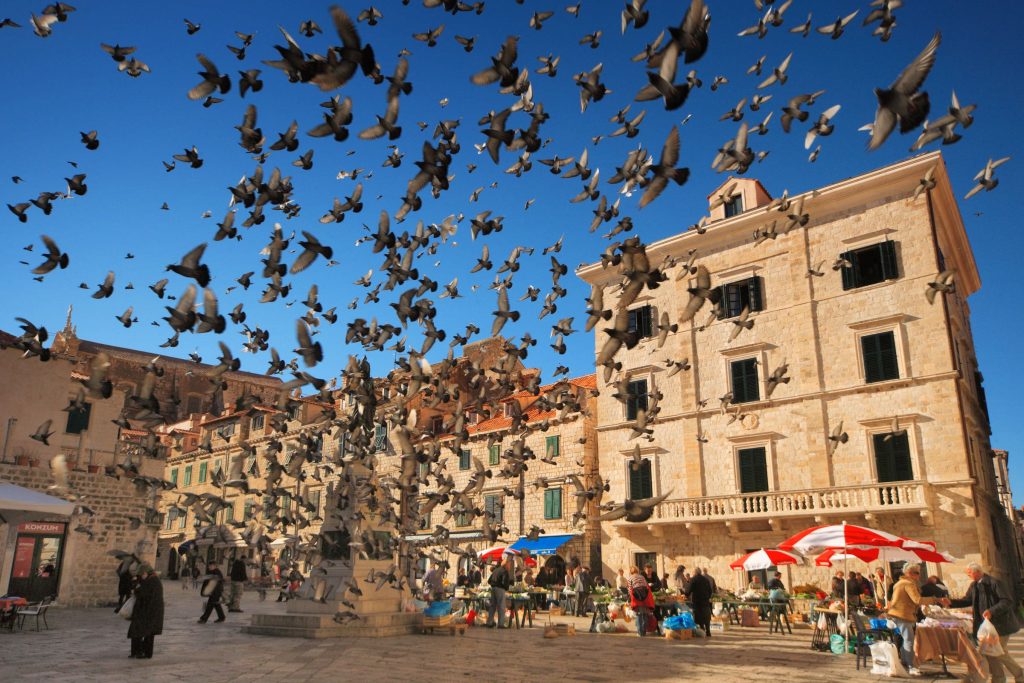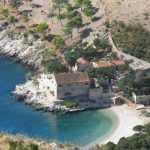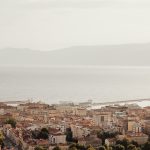In the first part of June, 20 percent of last year’s tourist results were achieved, as Poslovni Dnevnik writes on the 15th of June, 2020. Slovenes, Austrians, Hungarians, and from now onward, Germans can come to Croatia without special conditions and the need for self-isolation upon return. Will it save Croatian tourism? That question was analysed on Croatian radio.
”We’d certainly be satisfied with as many numbers as possible. We’re pleased with the number of more than 115,000 tourists currently staying in Croatia. Two weekends ago, we started out with 26,000 registered guests. Today is a turning point in terms of the epidemiological measures that relate to all guests coming from our largest emitting markets. At the moment, the most numerous guests are Germans, Austrians, Slovenes, and even Czechs,” Assistant Minister of Tourism, Robert Pende, told HRT.
There are currently 115,000 tourists in the country, and there will be more Czechs arriving here when the train leaves the Czech Republic for Croatia on June the 30th three times per week to Rijeka. The interest is great, despite the recommendations in these individual countries, for example, Germans have been recommended by their authorities to spend their holidays at home in Germany to try to boost the German economy.
”Everyone will feel the disturbance, especially from the German market. We assume that the Germans listen to the recommendations they’re given, but their capacities in the Baltic sea are almost full. These are tens of millions of guests going to other destinations. Due to the situation in the markets that are traditional for Germans (Spain, Portugal, Italy, Greece, Turkey), these are air destinations, air bridges haven’t yet been established, and there’s a question of safety when returning from destinations that are a little bit further away. We’re accessible to them by car and they can be back home in a couple of hours,” said Robert Pende.
”There are currently about 6,500 guests in Rovinj. Most of them are Germans, locals, Austrians and Italians. For now, the Dutch and Hungarians are absent. At the moment, we’re at 30 percent of the level of overnight stays we had when compared to the same period last year. This is encouraging, we hope that in July and August, we’ll manage to increase those percentages,” said the mayor of Rovinj, Marko Paliaga.
Across the entire spectrum of Croatian tourism, price reductions were expected but have not yet really occurred…
”The very recommendation of the Minister of Tourism is not to change the prices, especially when it comes to private accommodation. It’s still a little too early to talk about price adjustments. By July the 1st, we’ll have a picture of the movement of our tourist traffic, and then I believe that some will either adjust their prices or keep the prices as they are but with the provision of a better quality of service,” explained Paliaga.
The president of the association of travel agencies at the Croatian Chamber of Commerce, Boris Zgomba, touched on the topic of booking.
”When we talk about it, we try to predict some events. Given the fact that we’re currently in a situation we’ve never experienced before, it’s very difficult to predict events. But some trends are already being read. We’re witnessing an influx of guests and tourist traffic. More than a third of our guests are coming here because they own property, meaning they’re guests who have their own motives for coming and who are not so-called commercial guests. We’re slowly moving towards what is visible to us as an opportunity,” said Zgomba.
”Booking is moving, and we’ll be able to see in the coming weeks whether this is a dynamic that will manage to satisfy us,” he added.
The advantage of Croatia is its good epidemiological picture. Proper adherence to epidemiological measures is a guarantee of the success of Croatian tourism this year.
”As in all other parts of Croatia and Istria, the measures issued by the epidemiologists are properly respected. I believe that our guests will also respect everything recommended to them, as well as what they were taught in their own countries. I’m confident that we can respond to the new challenges, and I hope for more numbers than all the forecasts we’ve been given,” Paliaga said.
”Croatia has shown that it knows how to deal with the epidemic and there’s no doubt that our system can, in these situations, with its experience of dealing with coronavirus, in addition to adapting the system, respond to these challenges when it comes to risks of infection,” said Pende. He added that it we can be quite certain that there will be new cases of coronavirus in Croatia, but that the spread of the infection isn’t expected in certain destinations.
“After all, we still have a few imported cases,” Pende said.
”Looking at the demand at the moment, camps, mobile homes, holiday homes that are more isolated are booked and facilities that aren’t considered to be particularly crowded also are,” noted Zgomba.
Italians are welcome in Croatia, just like all other guests are.
As for the Italian guests, who are typically the most numerous in Croatia in August, Paliaga said that this weekend they had eight percent of tourists from Italy in the total structure. Italy was severely hit by the coronavirus pandemic, as was the United Kingdom and Spain if we’re talking solely about European countries, and some countries have been reluctant to allow citizens from the above countries in.
”One shouldn’t differentiate between guests by which country they come from. I believe that the guests who will come, especially from Italy, will be responsible and that they’ll adhere to the measures and instructions which were given to them. We must do everything to make all of our guests feel safe and welcome,” Paliaga said.
”The Italians are just as welcome as all the other guests are,” Zgomba said.
For more on Croatian tourism in the coronavirus era, follow our travel page.










